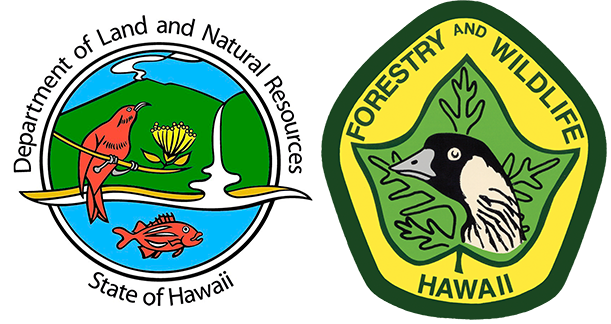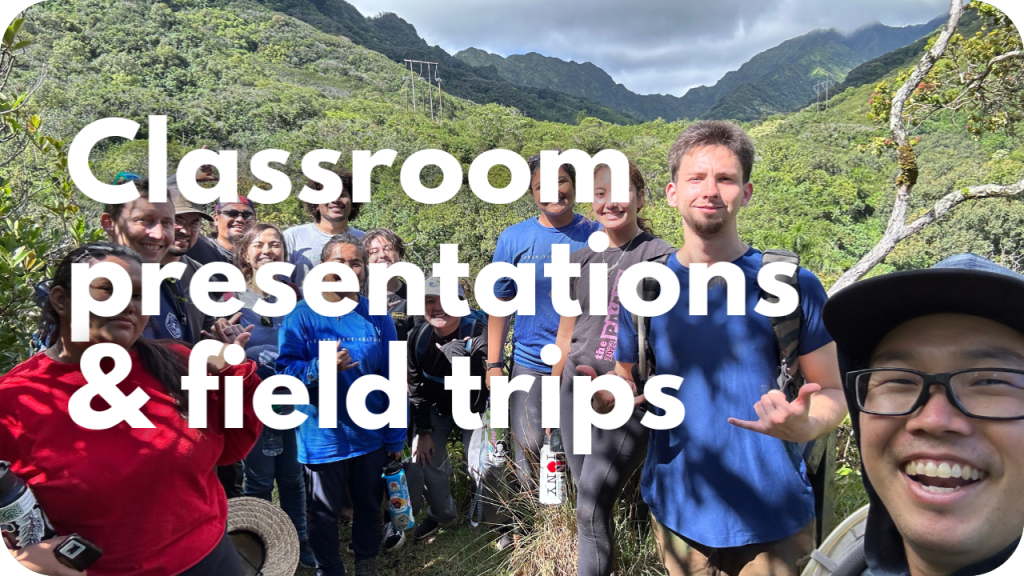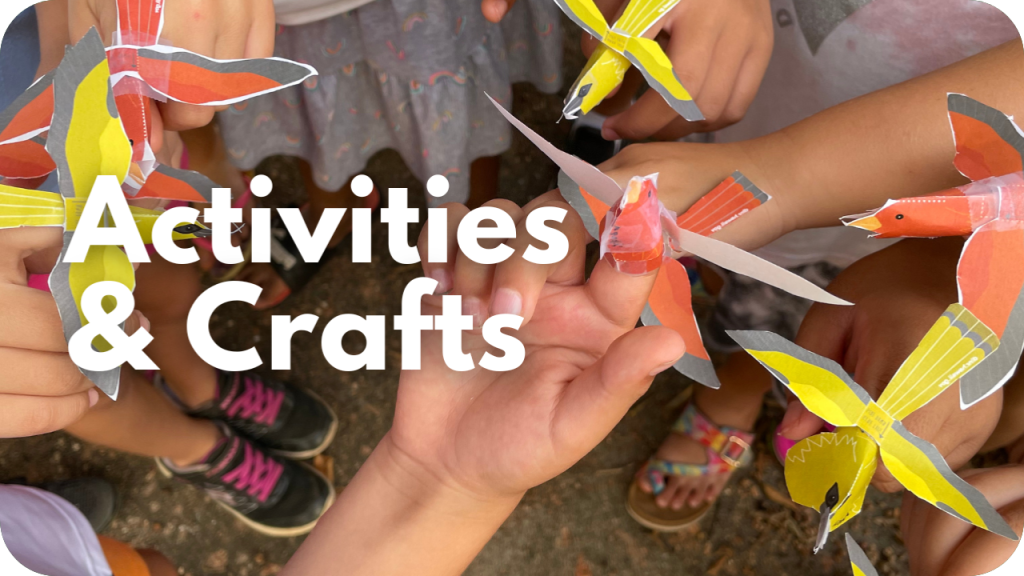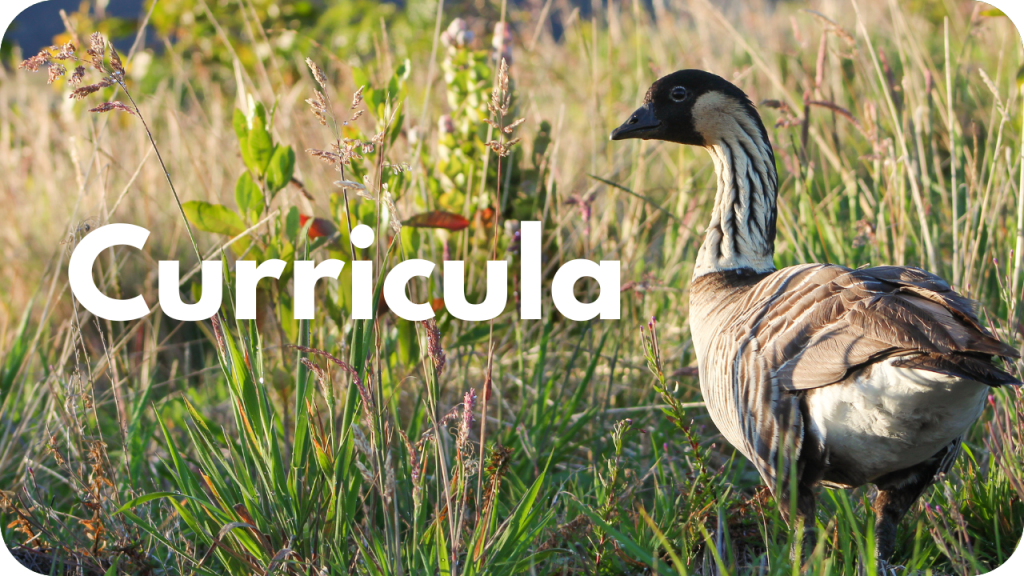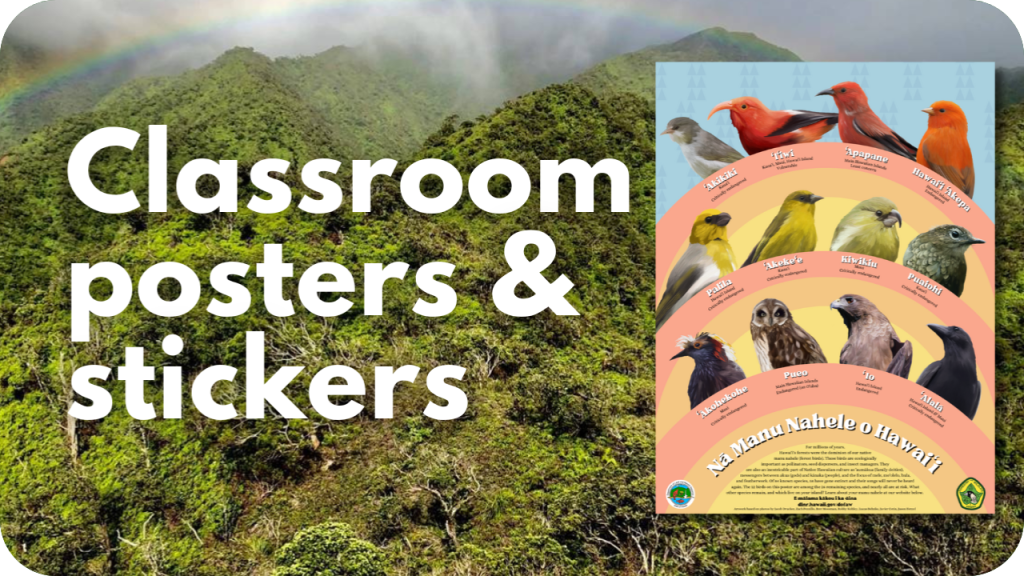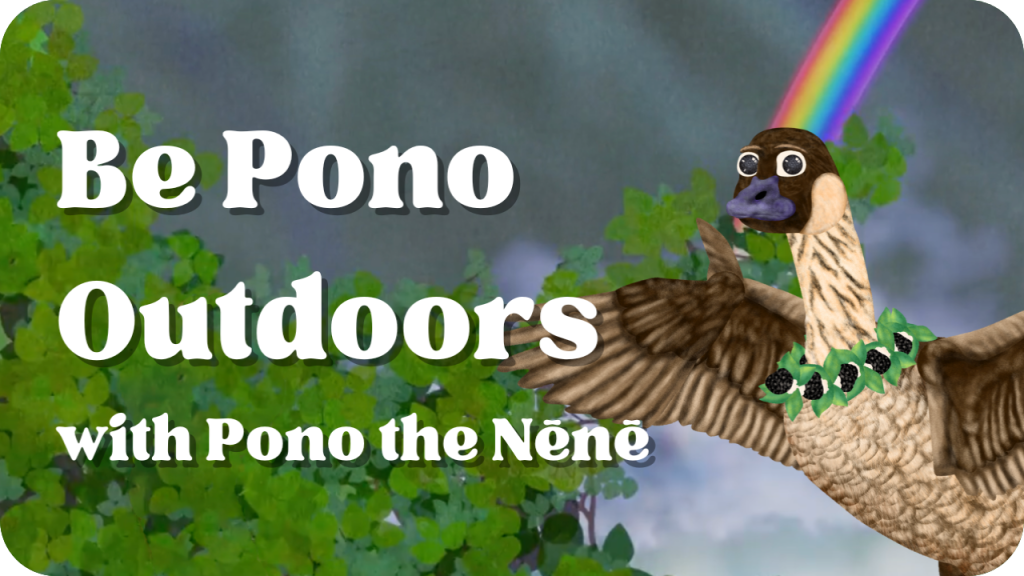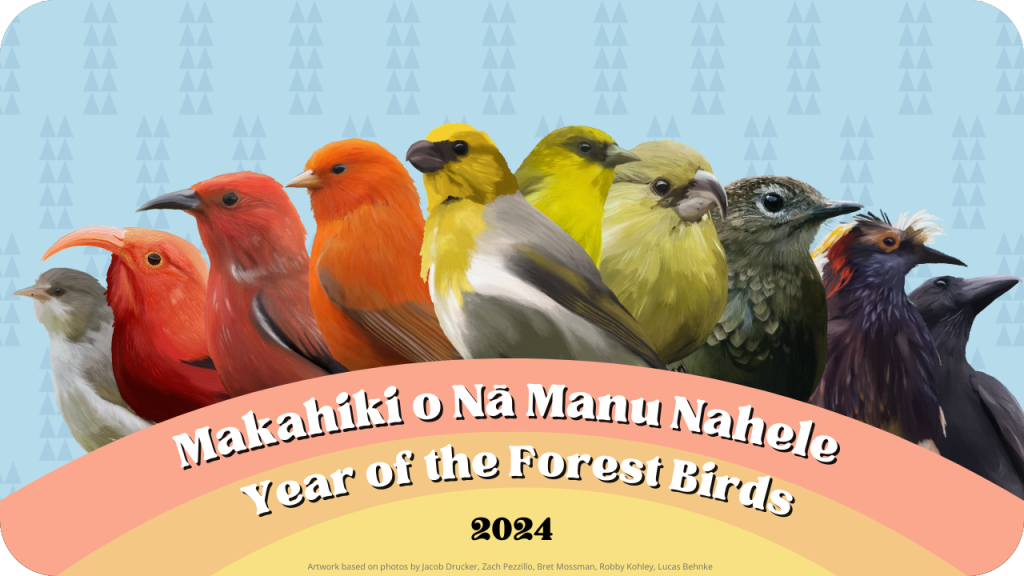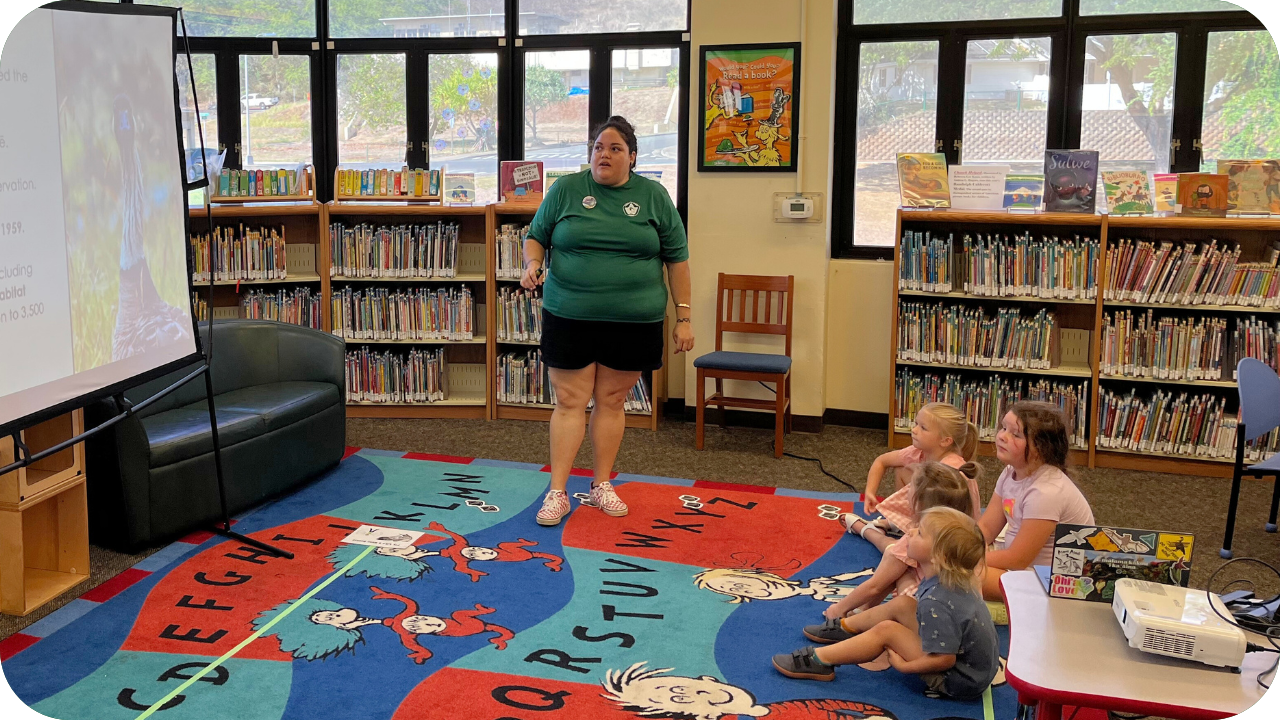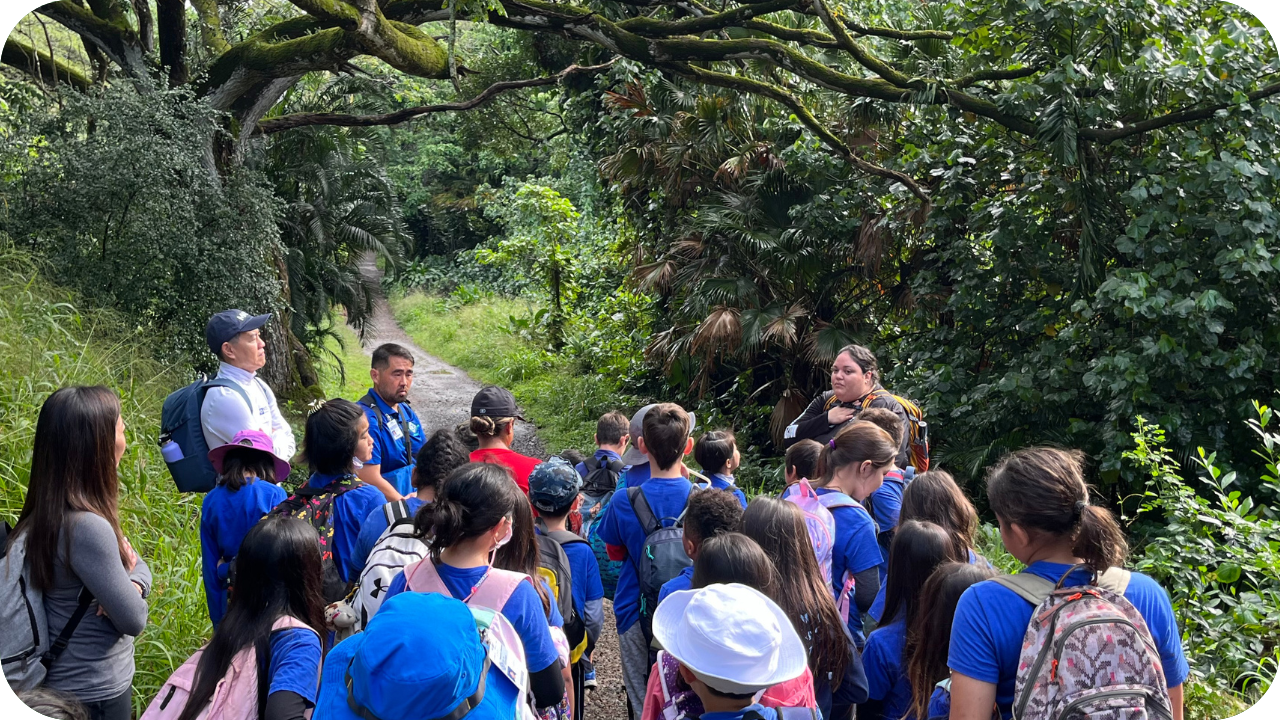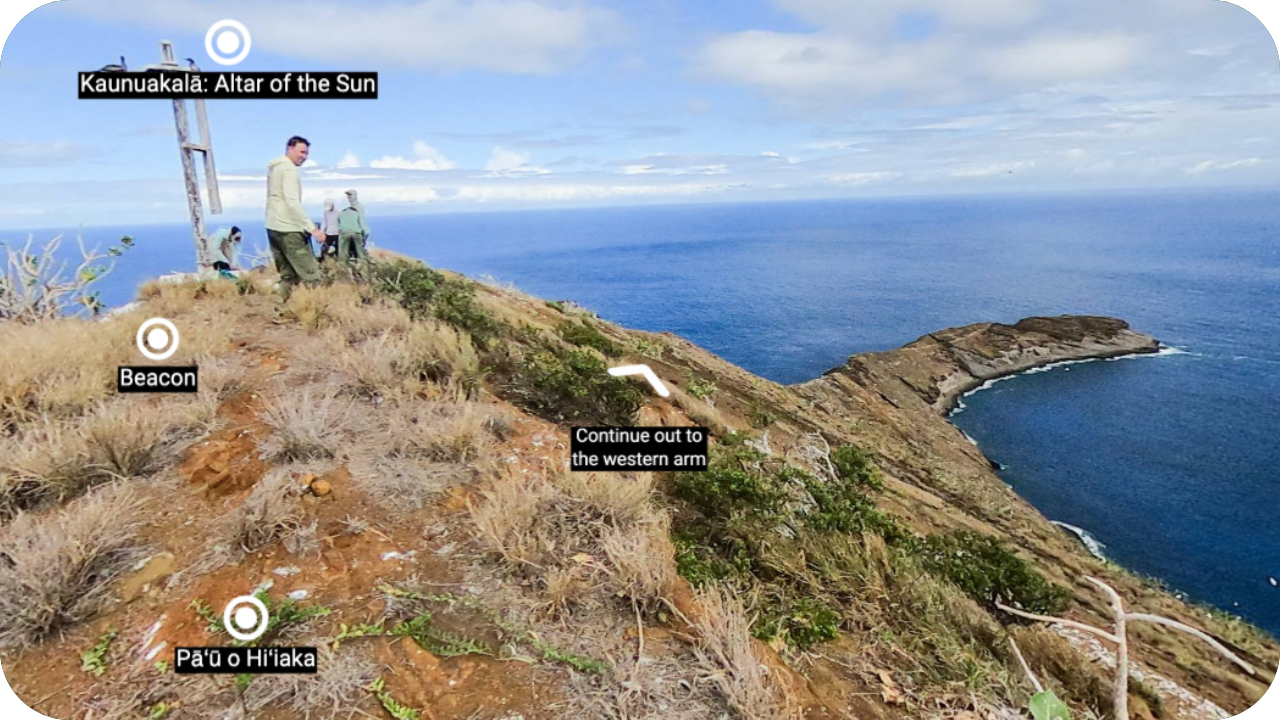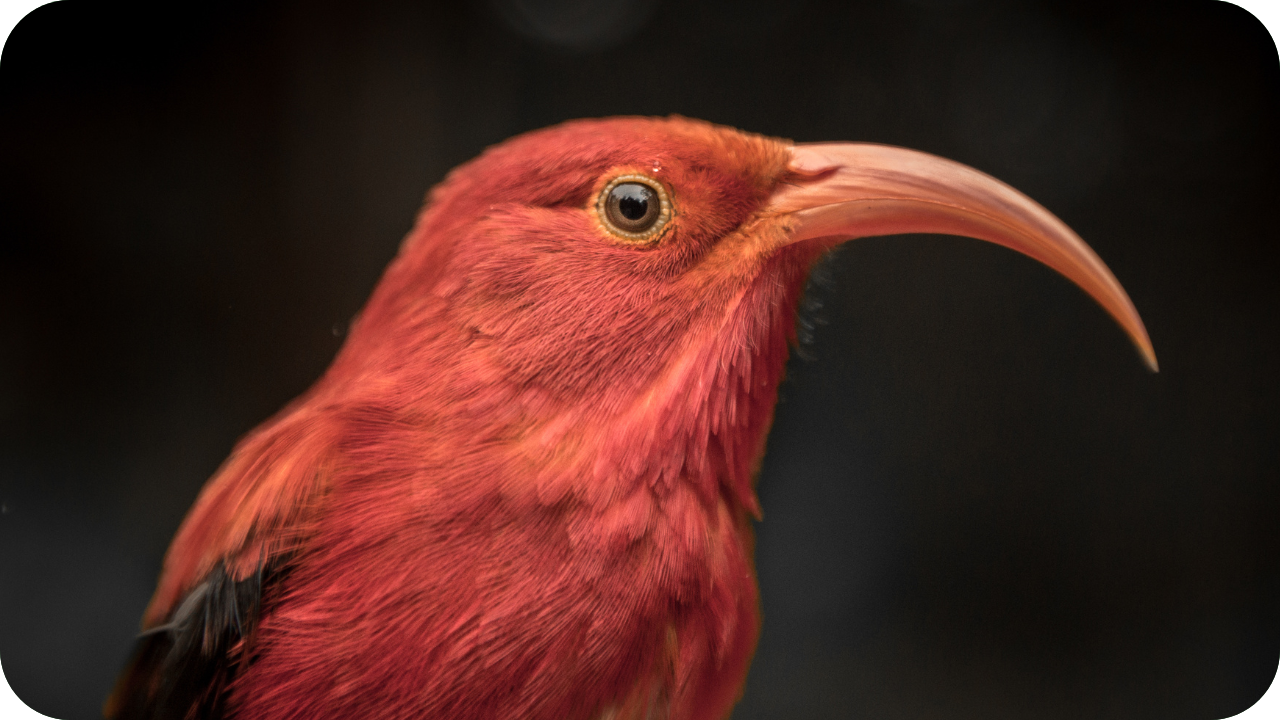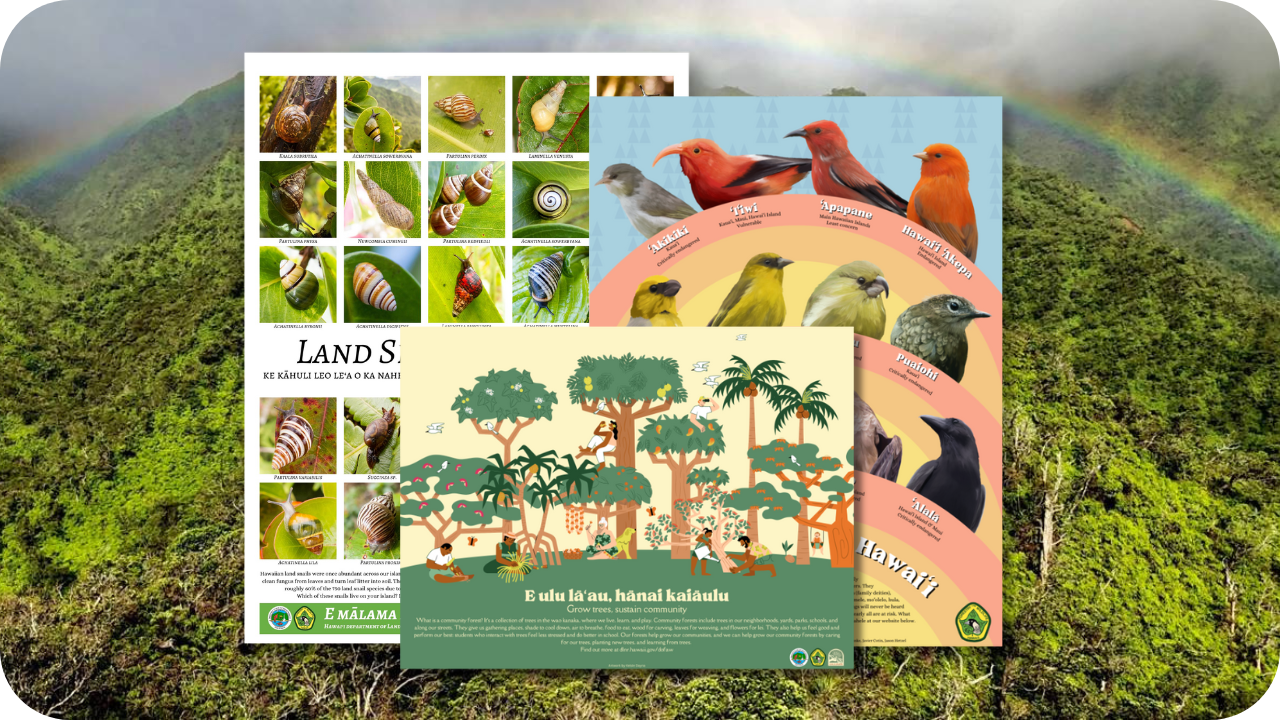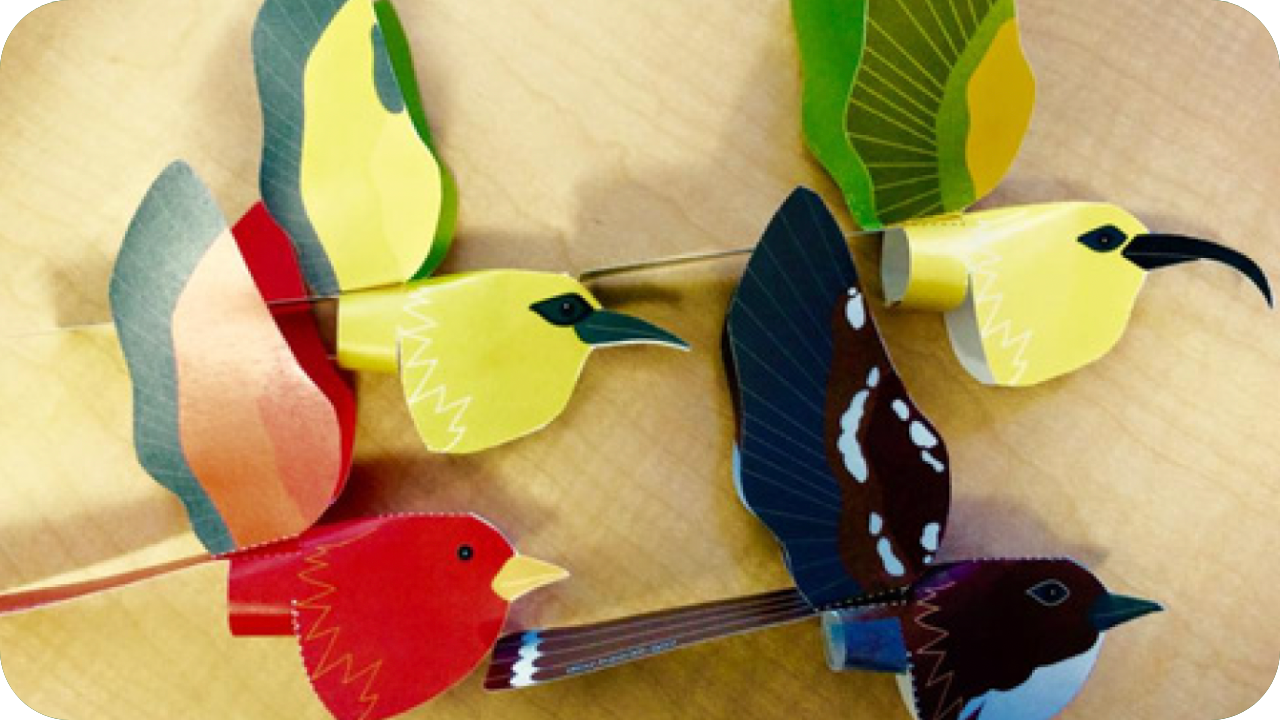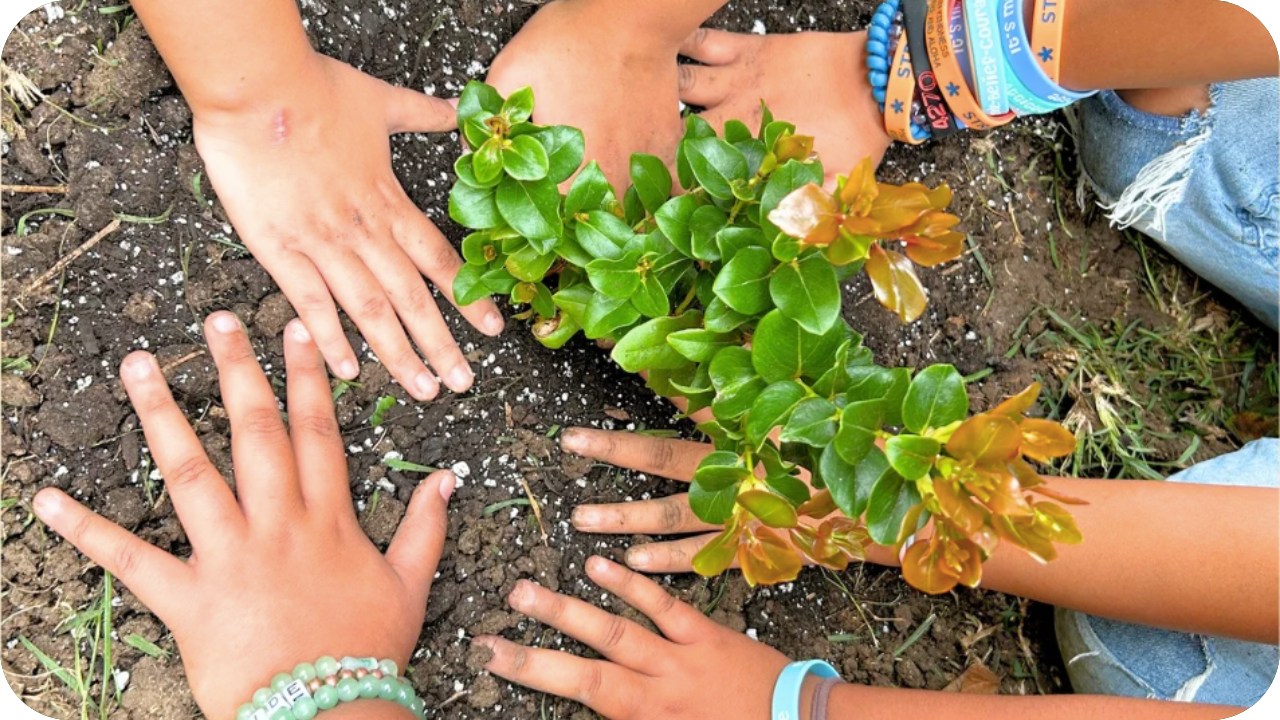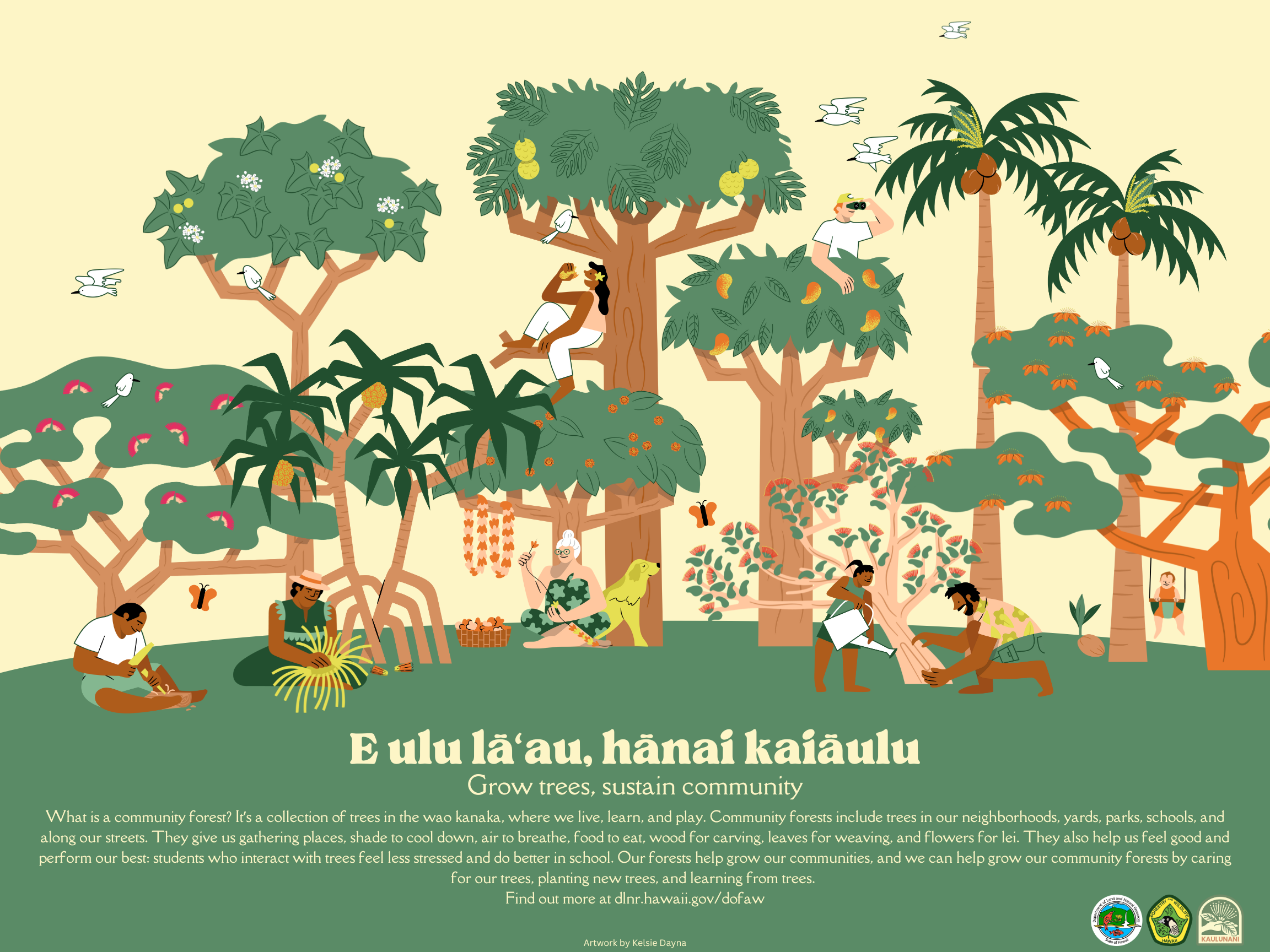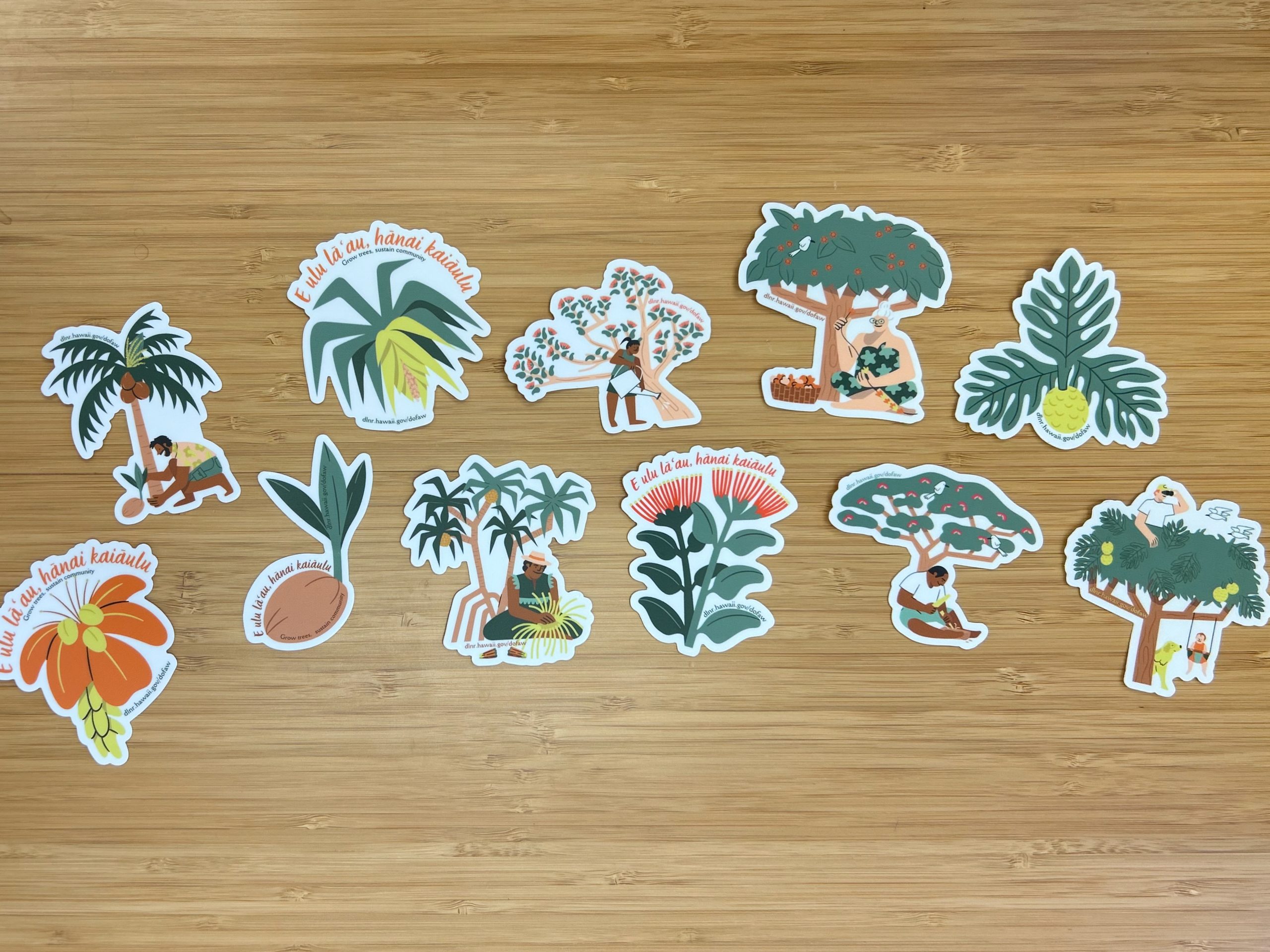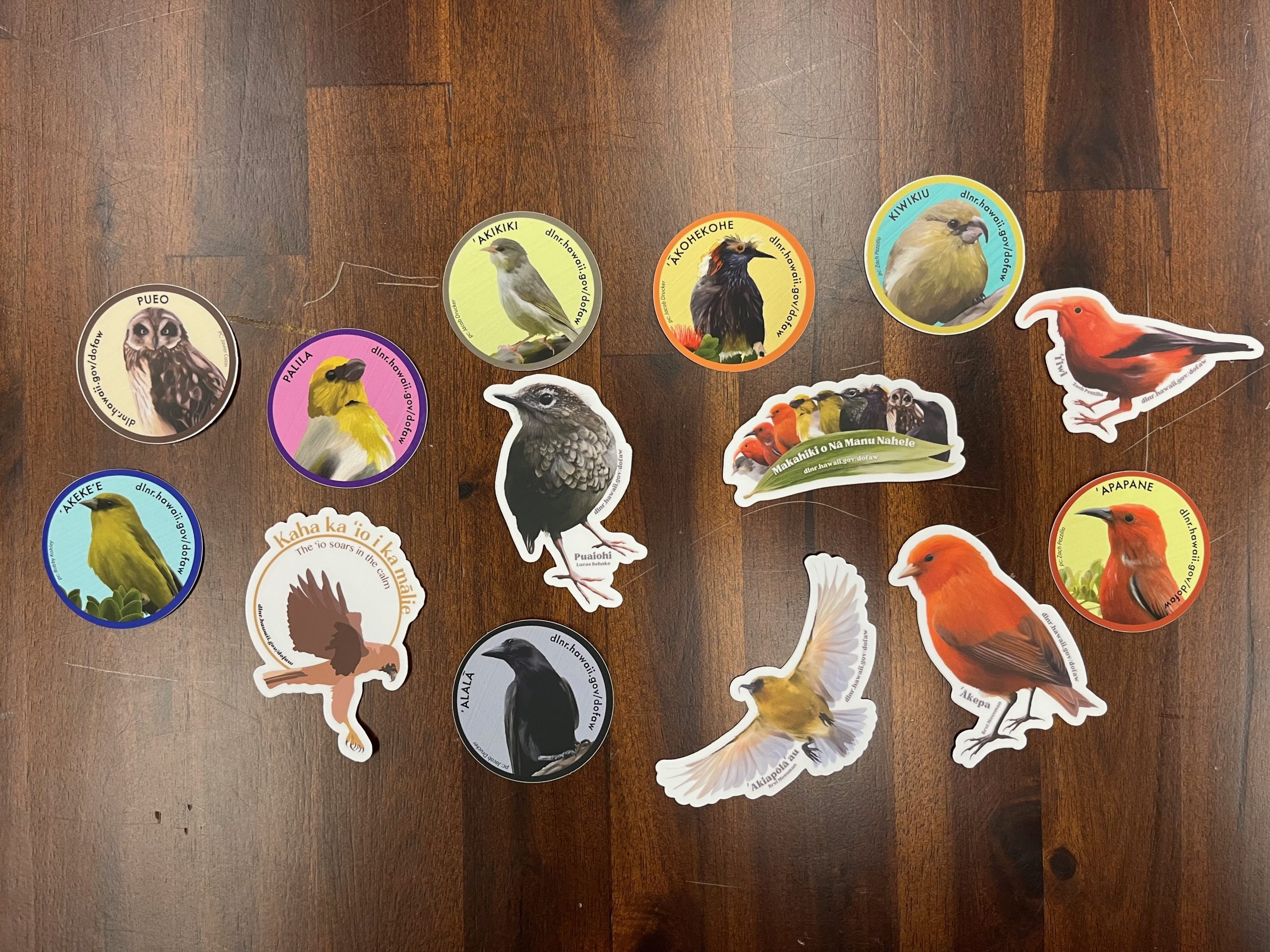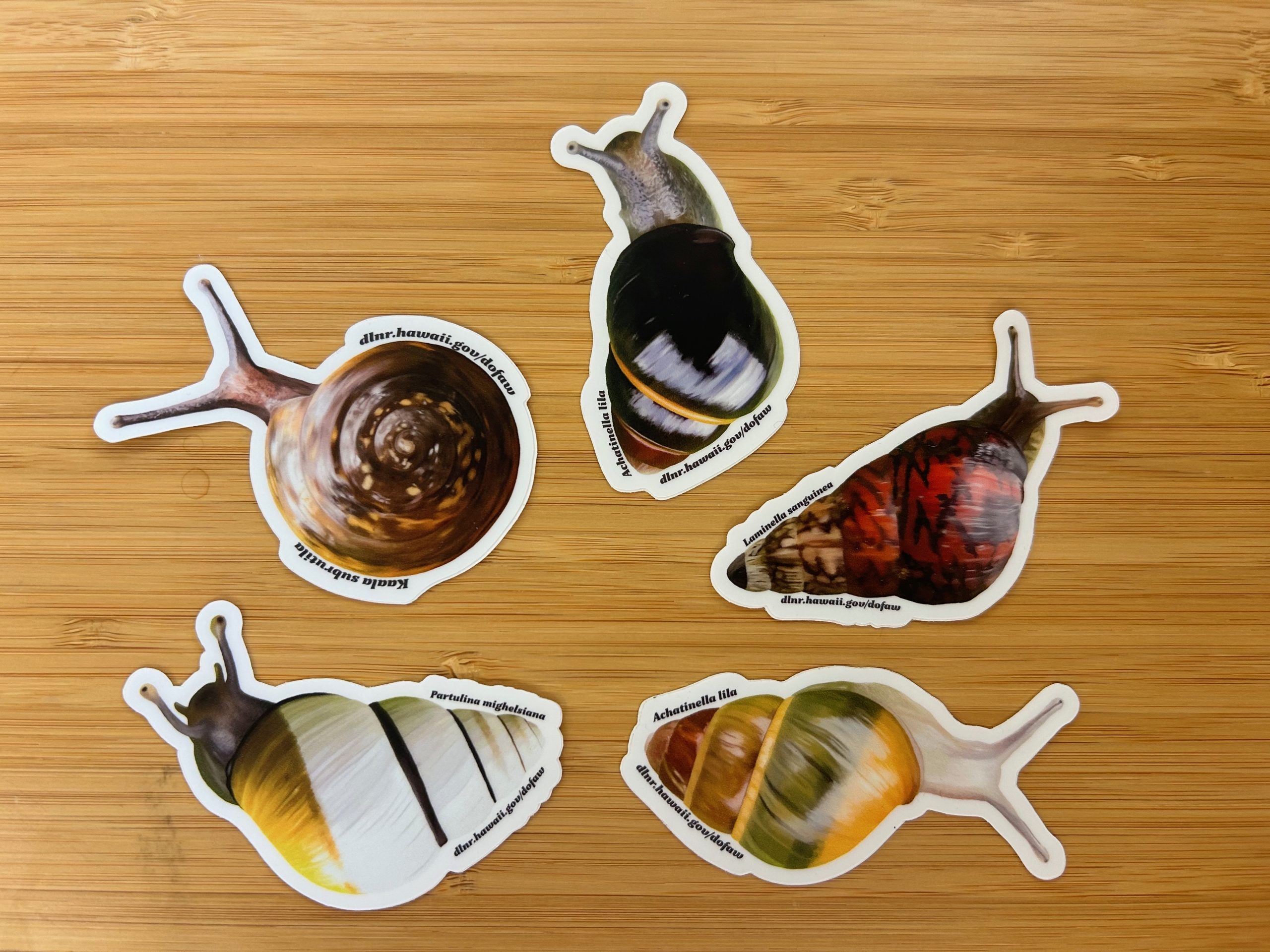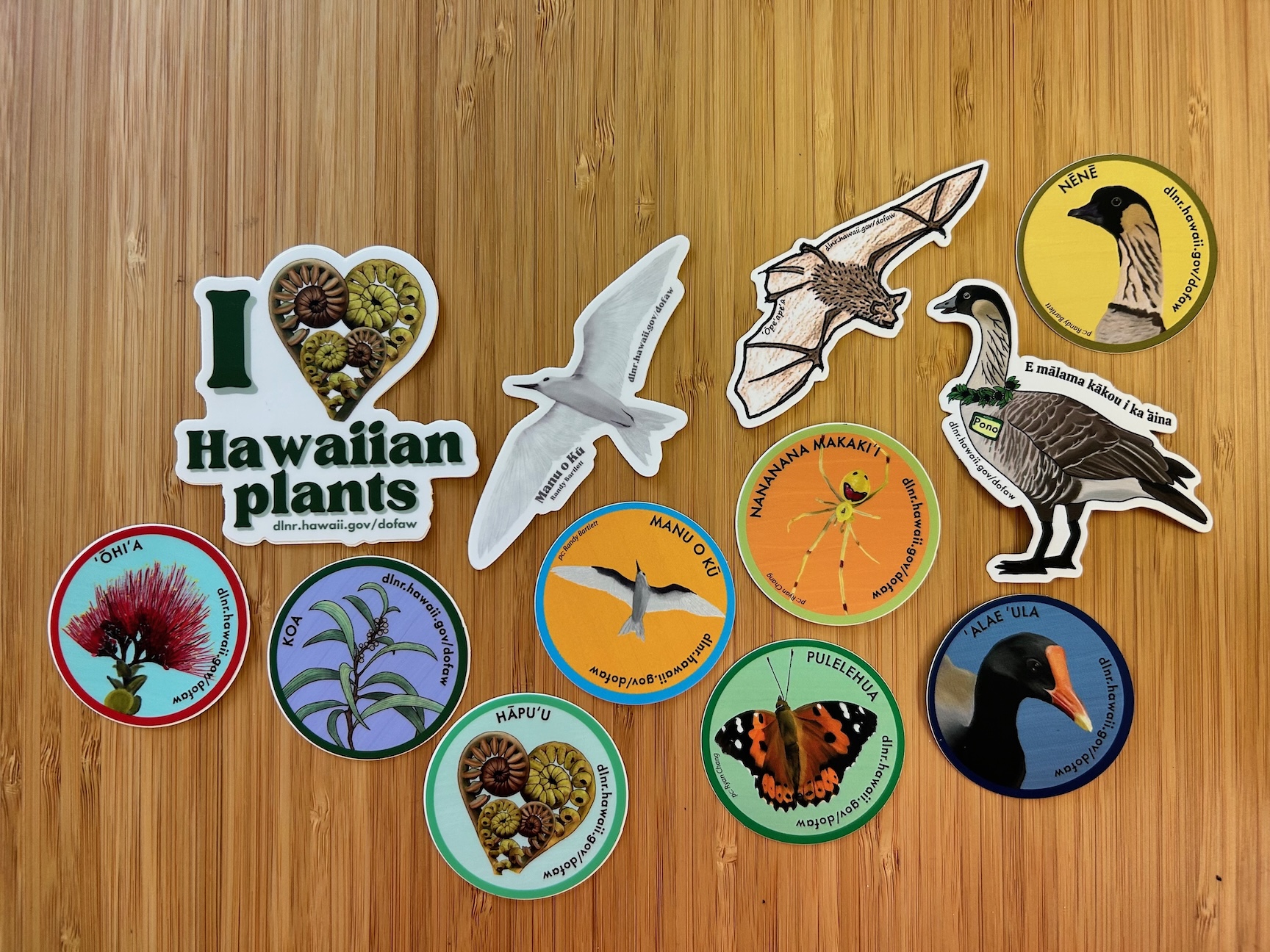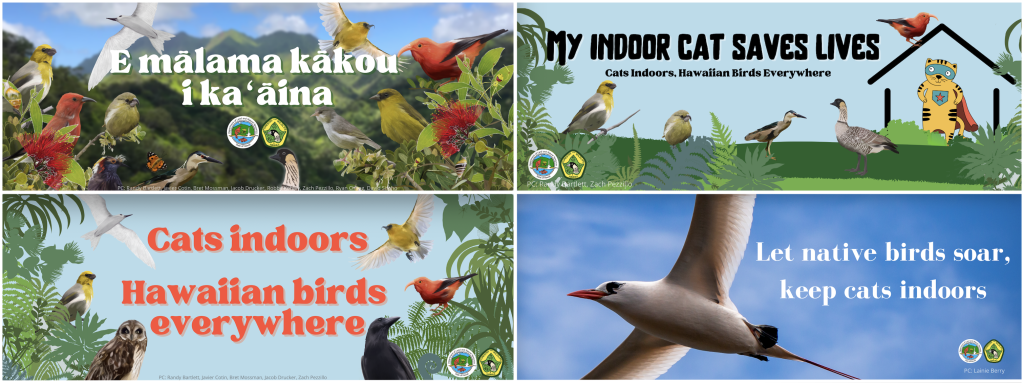Education
 Forestry & Wildlife recognizes the critical role of environmental education in engaging students and residents with the natural and cultural resources of Hawaiʻi. We provide the resources below to help you learn or to help you teach others. Educators can sign up for our Educator Bulletin, for occasional emails about new educational opportunities, like new events, videos, posters, virtual field trips, paper crafts, or other products for your classroom.
Forestry & Wildlife recognizes the critical role of environmental education in engaging students and residents with the natural and cultural resources of Hawaiʻi. We provide the resources below to help you learn or to help you teach others. Educators can sign up for our Educator Bulletin, for occasional emails about new educational opportunities, like new events, videos, posters, virtual field trips, paper crafts, or other products for your classroom.
Quick links
Campaigns
Our educational campaigns dive deeper into a specific theme. Click a campaign below to find educational resources and opportunities.
Also check out our native species backgrounds for meetings, computers, and phones, as well as our pages on Hawai’i’s conservation leaders, our Wahi Pana Essay Contest, and our Oʻahu Adopt a Forest program.
Classroom presentations
Our Education Specialists are available to visit your classroom and present on native species, invasive species, watersheds, wildfire, community forestry, and more. Presentations can also include hands-on activities or crafts.
Field trips and service learning
You can also use our online request form to request an in-person field trip. Our staff can take you on guided hikes or engage your students in hands-on activities like removing invasive plants or planting native seedlings. Locations and availability vary by island.
Virtual field trips: explore remote areas & learn about conservation careers
We produce virtual field trips to show students remote conservation lands and fieldwork. Our trips combine 360˚ images and clickable hotspots with educational videos, text, and photos. Project the virtual field trip on a big screen to take a trip as a class, or let students explore on their own devices. Our field trips are aligned to NGSS, Nā Hopena Aʻo, and ʻĀina Aloha standards.
Species profiles and conservation topics
We’ve developed hundreds of species profiles for native plants and animals containing ecological information alongside photos, videos, and audio. These resources can be used for student-led research projects or by educators preparing lesson plans. We also produce multimedia articles that dive deeper into conservation topics like watershed ecology, climate change, fencing, and more, all using place-based, real-world examples from our conservation projects.
Free classroom posters and sticker packs
For Hawaiʻi-based educators who are providing their students with a unit on natural resources, we will provide you free classroom posters featuring native birds, snails, community forests, wetlands, or rare plants. We can also provide classroom packs of 20 water bottle stickers featuring native species.
Our website lists our current poster and sticker offerings and instructions for placing your order
Downloadable activities: Crafts, coloring books, and games
We provide downloadable paper crafts for students to create finger puppets, masks, and headbands so they can engage in creative play that features native forest birds, snails, insects, and plants. We also have a downloadable board games about ʻōhiʻa and nēnē, and holiday ornaments.
Educational nature videos, made in Hawaiʻi
Our locally-produced videos include our ʻĪke Kaiāulu series that shares the knowledge of cultural practitioners who utilize natural resources, and our Conservation Stories series that show how biologists work in Hawaiʻi. We also host documentaries produced by DLNR or by partners, including the award-winning films Kāhuli and Saving ʻŌhiʻa.
Community forestry education & trees on campus
Our Kaulunani Urban & Community Forestry Program has multiple programs focused on improving school relationships with campus trees and the importance of schools in the community forest. Explore the Tree Campus program to celebrate campus tree-lationships, schedule a consultation with our Shade Trees for Schools program to enhance campus canopy, and request a classroom presentation about community forestry. Grants may be available to support your school in campus tree engagement.
To learn more, visit Kaulunani’s pages on Education & Technical Resources, Shade Trees in Schools, and the Tree Campus K-12 program.
Teacher Guides and Place-based Curricula
Hawaiʻi Kāhuli: Voice of the Forest: The Hawaiʻi Kāhuli Project has created a website all about kāhuli that incorporates stories, photos, curricula, and activities about Hawaiʻi’s land snails. Visit their site at https://hawaiikahuli.org/kahuli/, or jump straight to their Educator and Student Resources.
A Teacher’s Guide To Nēnē- Our Endangered State Bird: This resource provides teachers with the necessary background information to connect 4th and 5th grade students to learning more our state bird, the nēnē. Teachers can use this guide to engage student in learning activities that are both rigorous and relevant covering topics like nēnē behaviors, population growth, and diet.
A Teacher’s Guide to Endangered Birds of Hawai‘i: As part of our rich natural heritage, the native birds of Hawai‘i can be a fascinating topic of study. By exciting your students’ curiosity to learn more about these birds, you may open the door to a new opportunity for discovering more about the diverse and colorful wildlife Hawai‘i has to offer. The activities presented in this guide are designed to raise students’ awareness so that as concerned citizens they may help to prevent further loss of Hawai‘i’s unique and endangered bird species. Use the Printable Activities (Grades 3-7) and Coloring Book Fact Sheets (Forest Jewels Coloring Book) together to expand student knowledge of our native forest birds.
Project Aloha ‘Āina: The Moanalua Gardens Foundation (MGF) developed this curriculum for 4th grade students. While some of the curriculum is specific to the Moanalua ahupua‘a, this curriculum can serve as an example for educators looking to design content for their area.
Hōʻike o Haleakalā: Hōʻike o Haleakalā is a multi-disciplinary, science-based environmental education curriculum designed to help sustain the native Hawaiian landscape and culture by helping students establish and deepen connections to the land and the culture it supports. The Hōʻike curriculum supports State of Hawaiʻi high school educational standards, particularly in the science disciplines. Each activity is correlated to state science standards, offering educators a way to fulfill educational requirements using local ecosystems and issues as a context. These materials help bring science home for students while fostering a strong science background and critical-thinking skills. Hōʻike o Haleakalā is a downloadable curriculum for High School. Although it uses specific examples from Maui, many can be easily adapted for other islands.
Hawaiʻi Prevents Wildfire: The Hawaiʻi Wildfire Management Organization (HWMO) has developed a set of activity books to teach students about wildfire in Hawaiʻi and ways to be firewise. Educators can download materials from the HWMO website or request paper copies using the the order form at the following link: https://forms.gle/HA38zC6KaF7HfGGX9. Materials include:
- Keiki coloring sheets (2 sheets) for preschoolers
- Grade K-2 activity books
- Grade 3-6 activity books
- Coloring placemats
- Classroom posters
Way of the Wedgie: a place-based curriculum fabout ʻuaʻu kani, Hawaiʻi’s wedge-tailed shearwaters (aka wedgies), produced by the Hawaiʻi Audubon Society, Oikonos, and the Freeman Bird Preserve. These free digital lessons about ʻuaʻu kani biology and conservation are aligned with state learning standards and have been used by a number of Oʻahu schools. Designed for grades 6-8.
Natural Inquirer: Hawaiʻi-Pacific Islands Edition: This curriculum, designed for middle school students, includes six articles and several activities focused on Hawaiian forest birds, koa production, invasive species, carbon storage, and forest restoration. The articles are based on the work of scientists working at the Institute of Pacific Islands Forestry in Hilo, HI. Natural Inquirer products are produced by the USDA Forest Service, FIND Outdoors, and other cooperators and partners. At their website you can download the digital PDF or request that hardcopies be mailed to you, all for free.
Posters, Stickers, and Books for Educators
Forestry and Wildlife provides educational posters to decorate your classroom walls with native species, as well as stickers for your students to place on water bottles or laptops. Please note:
- Items are free to educators, and there are no shipping costs for your items. Mahalo for sharing Hawaiʻi’s native species and ecosystems with your students! Each educator can request 1 poster of each design below, and one classroom pack of 20 stickers in a given school year. We ask that you have the students place stickers somewhere long-lasting, like a waterbottle (they are dishwasher safe).
- Educators requesting free items must be teaching a unit about natural resources. Educators who request items may get added to our email list for our Educator Bulletin (details below). You can unsubscribe at any time.
- Hawaiʻi residents who are not educators can request 3 free water bottle stickers or bumper stickers.
- We do not ship items outside Hawaiʻi, and we do not ship posters on Oʻahu due to cost and volume of requests. Oʻahu educators can pick up posters in our office at 1151 Punchbowl St, Rm 325, Honolulu. No appointment is necessary, and our front office staff will be happy to assist you during normal business hours.
- To request educational items, contact us at [email protected] and include:
- Your mailing address, and whether you are an educator requesting items for a classroom as part of a teaching unit
- Which items you are requesting:
- Posters: Community Forests, Manu Nahele, Kāhuli, Rare Plants, Wetlands
- Water bottle stickers: Trees, birds, snails, plants, ʻōpeʻapeʻa, or a mix of everything
- Bumper stickers: “E mālama kākou i ka ʻāīna,” “Cats Indoors, Hawaiian Birds Everywhere,” “My Indoor Cat is a Superhero”
- Our Wao Akua book
Posters
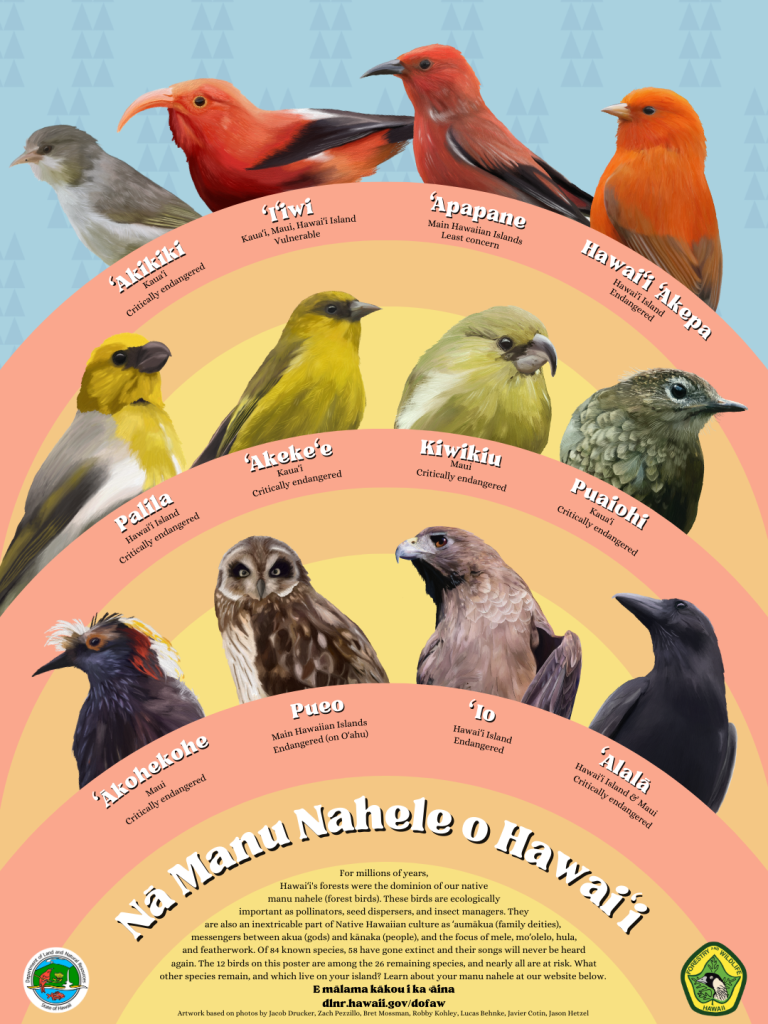
Nā Manu Nahele o Hawaiʻi / Forest Birds of Hawaiʻi
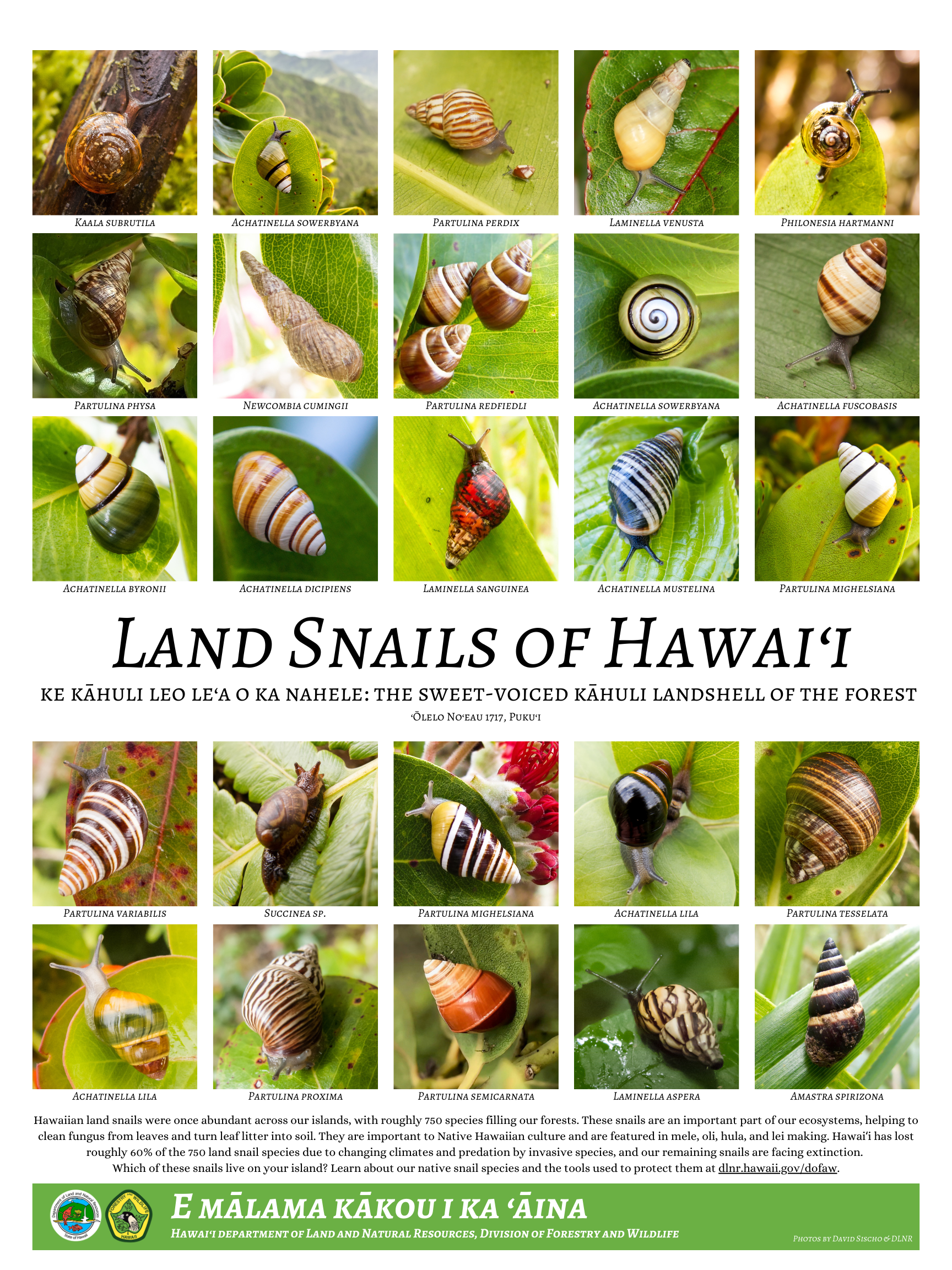
Land Snails of Hawaiʻi
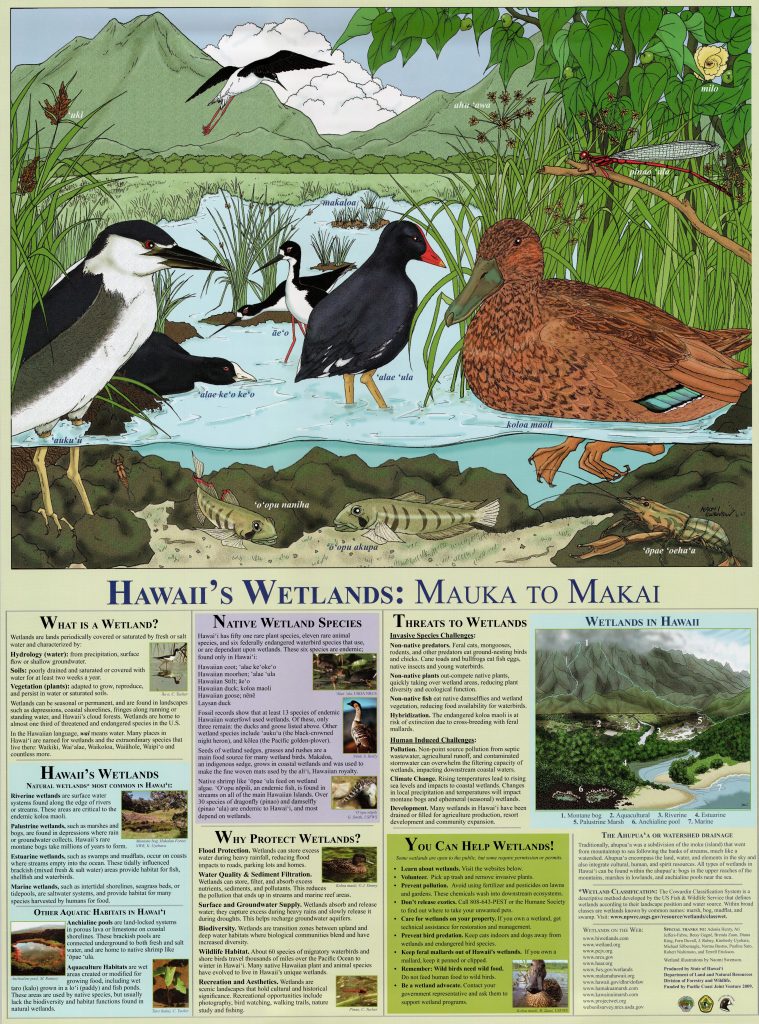
Hawaiʻi Wetlands: Mauka to Makai
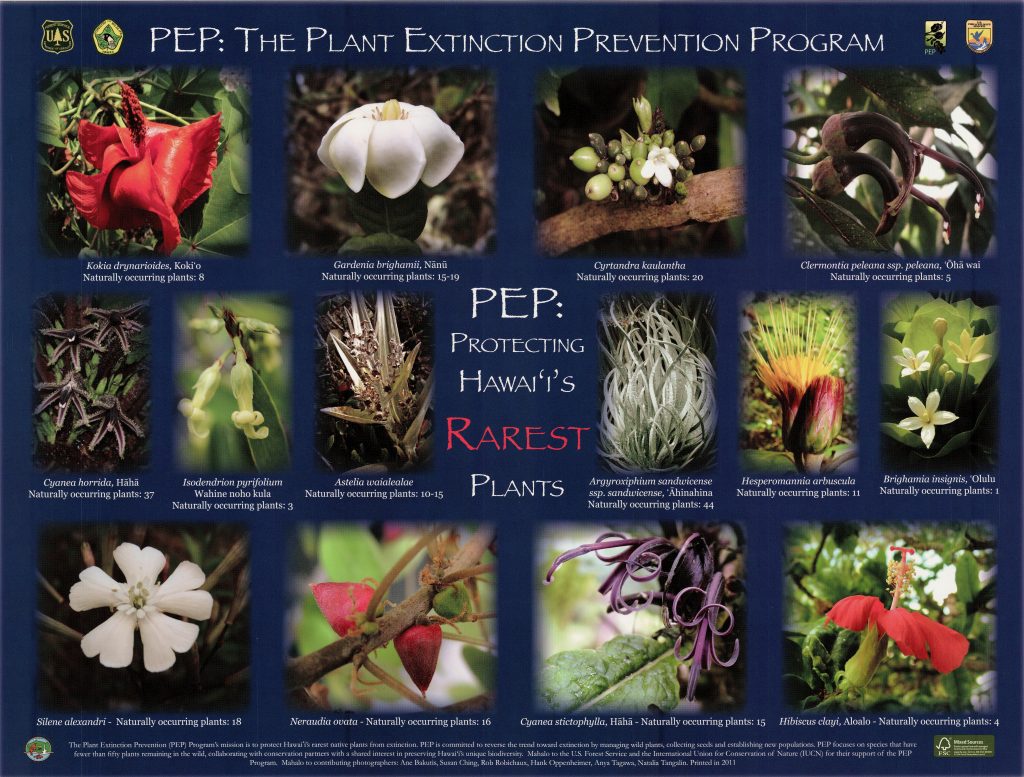
PEP: Protecting Hawaiʻi’s Rarest Plants
Forestry & Wildlife Stickers
Books
Wao Akua: Sacred Source of Life is now available upon request at no cost, with a limit one per person. To order a copy, contact our Forestry & Wildlife outreach program at [email protected].
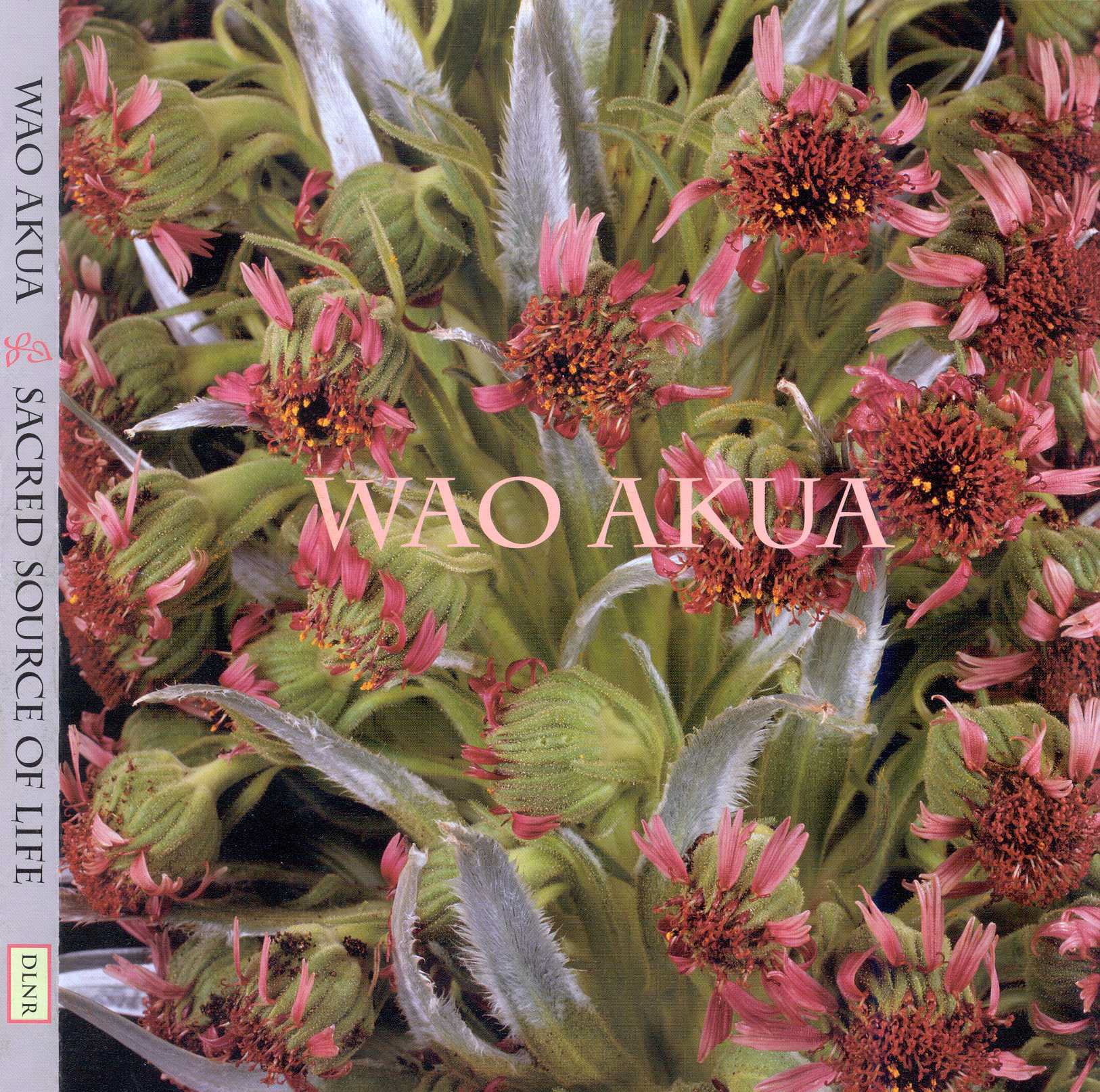
Let’s stay in touch: Sign up for our Educator Bulletin
Educators who want to receive updates on new educational opportunities and products can sign up for our Educator Bulletin. We won’t spam you and will send occasional emails about new posters, virtual field trips, paper crafts, or other products for your classroom.
